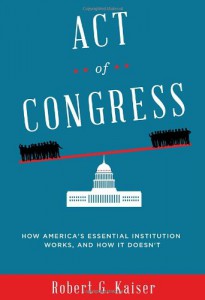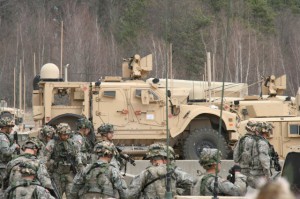Not new, but now becoming more transparent to the public.
Book: Deviant Globalization: Black Market Economy in the 21st Century (2011)
Continue reading “Berto Jongman: Deviant Globalization + Legalized Crime Meta-RECAP”
Not new, but now becoming more transparent to the public.
Book: Deviant Globalization: Black Market Economy in the 21st Century (2011)
Continue reading “Berto Jongman: Deviant Globalization + Legalized Crime Meta-RECAP”

Reading between the lines recommended.
PDF (72 pages): 2013-01-03 CRS on UCP and COCOMS
Phi Beta Iota: Buried in the small print are severe shortcomings in intelligence support to strategy, policy, acquisition, and operations around the world; TRANSCOM thinking that Guam comprises a long-haul strategy; the Arctic uncovered and the Antarctic ignored; and at the very end, a tiny mention of the alternative concept of joint inter-agency commands–and of course no mention at all of the key concepts of Network-Enabled Capabilities, OSE (technical solution) and M4IS2 (human solution). The new National Security Advisor is inheriting a gawd-awful mess that is out of control, out of money, out of imagination and out of integrity.
See Also:
Continue reading “Marcus Aurelius: CRS Overview of UCP & COCOMs”
![]() I cannot express how strongly I agree with this. My only critique: He does not properly place this in the context of the transition into the Age of the Non-geographical corporate states. If our democracy were functioning properly the lunatic Right Congresspersons would not be elected. Click through to see the interview. It is worth your time.
I cannot express how strongly I agree with this. My only critique: He does not properly place this in the context of the transition into the Age of the Non-geographical corporate states. If our democracy were functioning properly the lunatic Right Congresspersons would not be elected. Click through to see the interview. It is worth your time.
Journalist Explains How Utter Lack of Expertise in Congress Is Ruining America
ERIC W. DOLAN – The Raw Story

For his new book, journalist Robert Kaiser intensely researched the political maneuvering surrounding the Dodd–Frank Wall Street Reform and Consumer Protection Act. His conclusion? Most members of Congress don’t understand what they’re arguing about.
Speaking on PBS, Kaiser said Wall Street reform only occurred in the wake of the 2008 financial collapse thanks to the unique talents of former Rep. Barney Frank (D-MA) and former Sen. Chris Dodd (D-CT). Unlike the rest of Congress, Frank and Dodds had an actual grasp on the financial situation and understood the need to act. Frank provided the brainpower, while Dodds’ political skill was necessary for financial reform to pass.
‘But it was upsetting to me as a citizen to realize how few members understood the issues they were dealing with,” Kaiser remarked. ‘These are, of course, extremely complicated financial matters, how banks work, how they’re regulated, so on.” ‘Not everybody can know this, but at the end, I concluded that you could fit the number of experts in Congress on financial issues easily onto the roster of a Major League Baseball team,” he added. ‘That’s 25 people. I think that is the max.”
Kaiser also said the lack of expertise was resulting in a deadlocked Congress. Rather than trying to craft meaningful legislation to aid the country, most lawmakers were more interested in scoring partisan political points. ‘You don’t really engage on issues in this Congress,” he explained. ‘What you engage in is political warfare, partisan bashing, one or the other. And the result is that serious policy issues, as we have seen again and again, get very short shrift.”

Army's new mobile network to support its Afghan security mission
FORT DRUM, N.Y. (May 31, 2013) — As the U.S. mission in Afghanistan evolves from full spectrum combat operations to a support role in helping Afghan forces take hold of their country's security, unit commanders emphasize the need for network mobility.
Warfighter Information Network-Tactical, or WIN-T, Increment 2, the Army's improved tactical network communications backbone, was designed to fulfill such a mission.
“As we reduce our presence in Afghanistan, it is absolutely critical that we continue to understand what is happening around us, to understand the operational environment,” said Col. Sam Whitehurst, commander of the 3rd Brigade Combat Team, 10th Mountain Division (Light Infantry), during a recent training exercise at Fort Drum, in preparation for his unit's possible deployment to Afghanistan. “My ability to take the information that I am hearing from my team leaders, and then share it with all of our Afghan partners, so they can correspondingly help confirm or deny that information and share what they are seeing, is one of the most critical elements as we go forward into Afghanistan over the next year.”
The mobile WIN-T Increment 2 network is being fielded as part of the Army's new capability sets. Capability Set 13, or CS 13, is the first of these fully-integrated fielding efforts, which are scalable and tailorable in design to support the changing requirements of current and future missions. CS 13 includes radios, satellite systems, software applications, smartphone-like devices and other network components that provide connectivity from the stationary command post to the commander on-the-move to the dismounted Soldier. WIN-T Increment 2 is the tactical communications network backbone that binds the capability sets together.
Continue reading “2013 Army's new mobile network to support its Afghan security mission”

Huh?
Weekend Edition May 31-Jun 02, 2013
The CIA: Keepers of the Hit Lists
by DOUGLAS VALENTINE and NICOLAS J.S. DAVIES
In February the Guardian and BBC Arabic unveiled a documentary exploring the role of retired Colonel James Steele in the recruitment, training and initial deployments of the CIA advised and funded Special Police Commandos in Iraq.
The documentary tells how the Commandos tortured and murdered tens of thousands of Iraqi men and boys. But the Commandos were only one of America’s many weapons of mass destruction in Iraq. Along with US military forces – which murdered indiscriminately – and various CIA funded death squads – which murdered selectively – and the CIA’s rampaging palace guard – the 5,000 man strong Iraq Special Operations Forces – the Commandos were part of a genocidal campaign that killed about 10% of the Sunni Arabs of Iraq by 2008, and drove about half of all Sunnis from their homes.
Including economic sanctions, and a 50 year history of sabotage and subversion, America and its Iraqi collaborators visited far more death and destruction on Iraq than Saddam Hussein and his regime.
Experts unearth concerns over ‘peak soil'
In the past 40 years, 30 percent of the planet's arable land has become unproductive due to erosion, scientists say.
Reykjavik, Iceland – Soil is becoming endangered, and this reality needs to be part of our collective awareness in order to feed nine billion people by 2050, say experts meeting in Reykjavík.
And a big part of reversing soil decline is the use of carbon, the same element that is helping to overheat the planet.
“Keeping and putting carbon in its rightful place,” needs to be the mantra for humanity if we want to continue to eat, drink and combat global warming, concluded 200 researchers from more than 30 countries.
“There is no life without soil,” said Anne Glover, chief scientific adviser to the European Commission.
“While soil is invisible to most people it provides an estimated $1.5tn to $13tn dollars in ecosystem services annually,” Glover said at the Soil Carbon Sequestration conference that ended this week.
The dirt beneath our feet is a nearly magical world filled with tiny, wondrous creatures. A mere handful of soil might contain a half million different species including ants, earthworms, fungi, bacteria and other microorganisms. Soil provides nearly all of our food – only one percent of our calories come from the oceans, she said.
Soil also gives life to all of the world's plants that supply us with much of our oxygen, another important ecosystem service. Soil cleans water, keeps contaminants out of streams and lakes, and prevents flooding. Soil can also absorb huge amounts of carbon, second only to the oceans.
“It takes half a millennia to build two centimetres of living soil and only seconds to destroy it,” Glover said.
Here is the abstract of a research paper, that is one of the first things I ever saw that seriously considered the E-government trend, and how it is going to impact citizens. It was published two years ago and, recently a reader sent it to me, and I read it again. I want you to notice how little has changed in the three year! s since it was published. Why is that, do you suppose?
Also note this odd lacuna. There is not discussion of voting, only communications. With our existing technology it is possible to develop e-voting in such a way that each citizen could vote. You wouldn't have to have polling booths, you wouldn't have to mail things, and you wouldn't have to go anywhere. It could be done from any computer, a pad, or a smartphone. To secure it you could use social security numbers, a pre-set-up ID, and a password.
We do billions of financial transactions each day on less security. By comparison this would be 50 state websites, whose Federal totals were simultaneously sent to a Federal website. Everyone eligible could vote in a single day. It would all be completely transparent to the media and the citizens.
It would bypass voter suppression, hanging chads, and all the rest of the schemes. And it would produce a radically different Congress and serve as the counterweight to Citizens' United.
Ask yourself: Why don't we have such a system?
Misplaced Trust? Exploring the Structure of the E-Government-Citizen Trust Relationship
FORREST V. MORGESON III, DAVID VANAMBURG and SUNIL MITHAS – Journal of Public Adminstation Research and Theory
Abstract
A growing body of research focuses on the relationship between e-government, the relatively new mode of citizen-to-government contact founded in information and communications technologies, and citizen trust in government. For many, including both academics and policy makers, e-government is seen as a potentially transformational medium, a mode of contact that could dramatically improve citizen perceptions of government service delivery and possibly reverse the long-running decline in citizen trust in government. To date, however, the literature has left significant gaps in our understanding of the e-government-citizen trust relationship. This study intends to fill some of these gaps. Using a cross-sectional sample of 787 end users of US federal government services, data from the American Customer Satisfaction Index study, and structural equation modeling statistical techniques, this study explores the structure of the e-government-citizen trust relationship. Included in the! model are factors influencing the decision to adopt e-government, as well as prior expectations, overall satisfaction, and outcomes including both confidence in the particular agency experienced and trust in the federal government overall. The findings suggest that although e-government may help improve citizens’ confidence in the future performance of the agency experienced, it does not yet lead to greater satisfaction with an agency interaction nor does it correlate with greater generalized trust in the federal government overall. Explanations for these findings, including an assessment of the potential of e-government to help rebuild trust in government in the future, are offered.